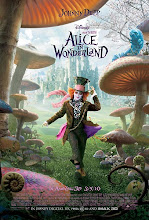
Written By E. Corrado
When did you find out that you were scoring The Tale Of Despereaux? On this one it was about 2 - 2 1/2 years ago.
What kind of timeline on average do you usually have to score a movie? On a regular feature the process varies as the business keeps changing. It can be 2-3 months, 1 month, or in some emergency situations it can be 1 week.
Do you prefer having more time? That’s a good question - no one’s actually asked me that before. It’s a longer time to sit and worry, but no, I really do like having the extra time to do it especially with producer/writer, Gary Ross. During the process you can talk about what works, and doesn’t work. When you try various things you can edit them later, even though sometimes, it’s best to just go with your first instinct.
What’s it like working on an animated film? There was more time and it was interesting writing to footage that won’t be final footage. There were some cues I’d done that I didn’t get the footage until just before the scoring session. It’s always a work in progress.
What was it like doing The Tale Of Despereaux? Did you read the book beforehand? I remember the book from awhile ago, but there are always ways that they change things to make them work better on screen. I very quickly got the script on this one, which is a nice place to start from.
What were the challenges, if any, that you faced while working on The Tale Of Despereaux, and how does this compare to other films that you have worked on? The emotional challenges are constant because before you start anything, you wake up to blank sheet, or computer file. It was interesting in the sense that it wasn’t a real film to look at when I started. Imagine trying to write to just story boards, where’s in a live action movie, they’ve shot everything, so you know how things will move, the colours, and the camera angles. Sure they may edit it here or there but for the most part it’s close to what you will see on screen. Story boards are nice since you spend some time thinking about it.
When did you know that you wanted to compose and work with music? I grew up playing the piano, but I never really thought about it until college. I realized that what I was heading off to do was not what I really wanted to do, and I love music so that’s what I followed instead.
Did you study music formally? Yes in a lot of different places. I also started studying scores on my own and when you’re doing that, having a teacher really helps because they have a lot more experience than you and can give you their perspective on things. The musical vocabulary of film kind of dates back to orchestral music. It’s kind of like the romantic styles, but it’s so much greater than that, in the sense that when you put extreme dissonance in concert, some people find it difficult to connect emotionally with it, but in a cinematic sense, depending on the movie, it can really enhance the scene, and so it works.
How did you study scores? When I’d hear things that would interest me, I would look at where, and what it was on the score. Unfortunately, you can’t really just go out and buy most film scores. If you’re interested though, Hal Leonard does have a great series of John William’s work called the signature series, and that is a way to look at the orchestral scores of some of the themes from movies like Star Wars, and ET.
What programs do you use when working with the computer? I use Logic Pro 8 as well as ProTools and several other programs.
Are there any scores that you felt you could have done differently? Some seem like to me, the best I could do. Some I would not want to change, like My Dog Skip, which feels almost like it’s just one piece. You do sometimes think ‘why didn’t I make that before that’ and want to change things though.
What was your favorite movie to write music for, and why? ‘Despereaux’ is right up there at the top. Also, My Dog Skip, and Tuck Everlasting. The music really works with those ones, and like I said, My Dog Skip feels almost like it’s all just one piece.
What was your favorite part of doing the music for The Tale Of Despereaux? There is one scene in particular that I really loved. It is the one where Princess Pea is talking to Despereaux. I tried that three different ways, and it was the third way that worked. It was very simple, and it came back to a very simple theme. I thought it was great in the way that it just makes you fly through the scene.
Thank you for taking the time to talk to me today. It’s been a pleasure, and I hope that your readers will go out and see ‘Despereaux’ and enjoy the music in it.
One Movie, Five Views thanks William Ross for taking the time to do this interview.








No comments:
Post a Comment